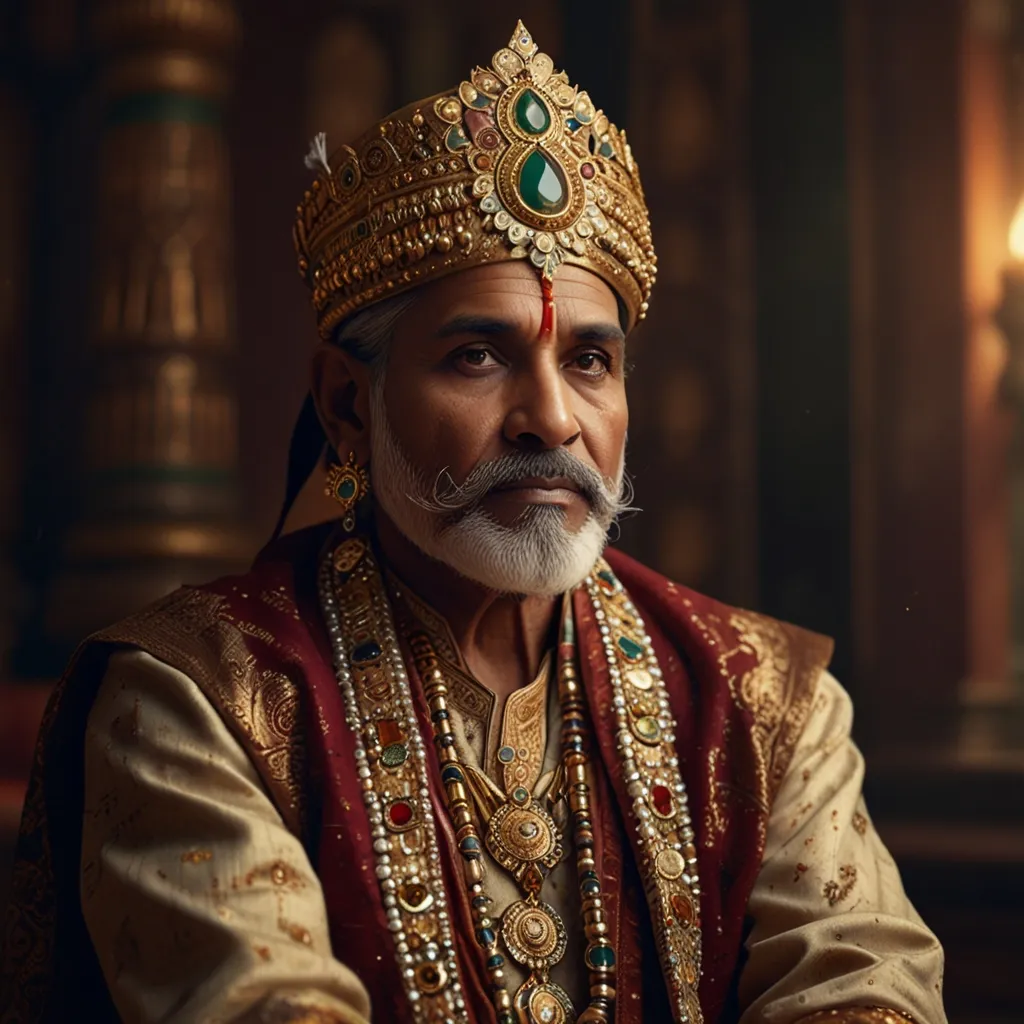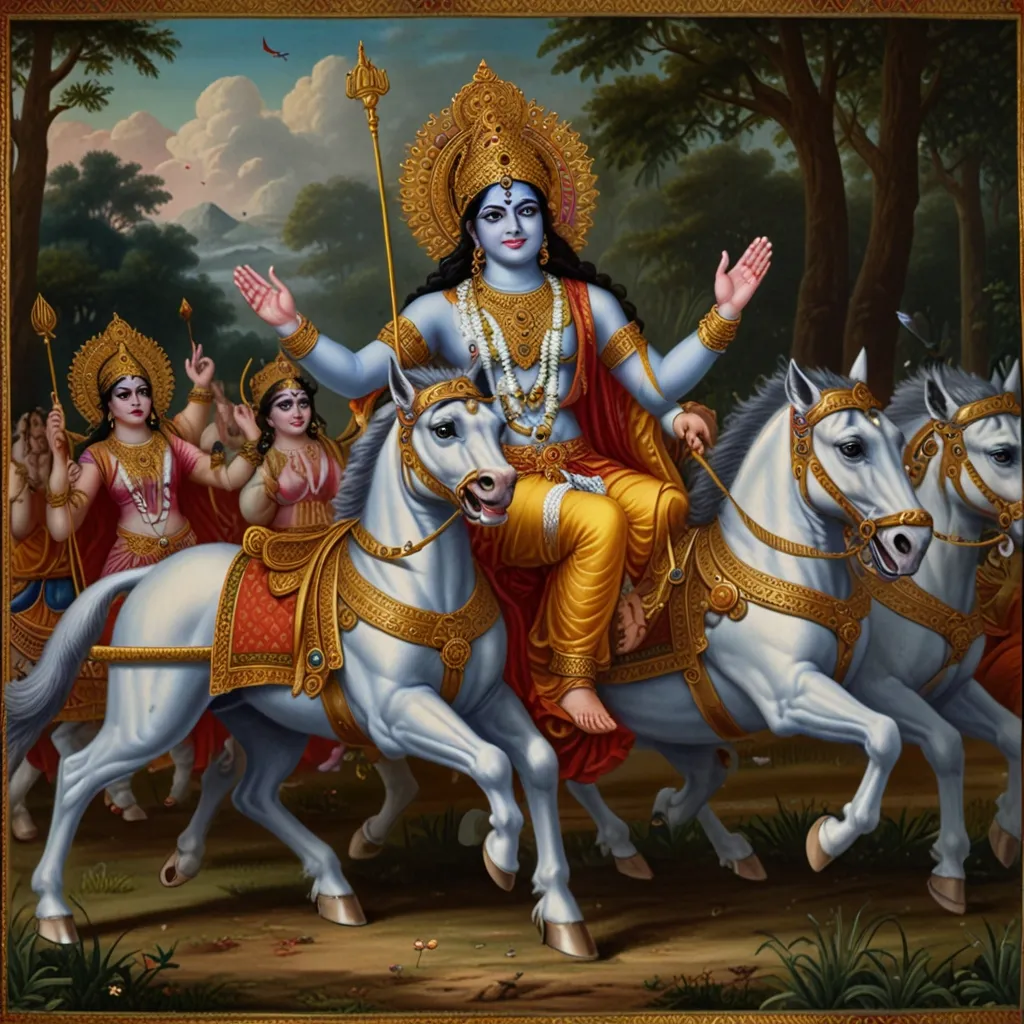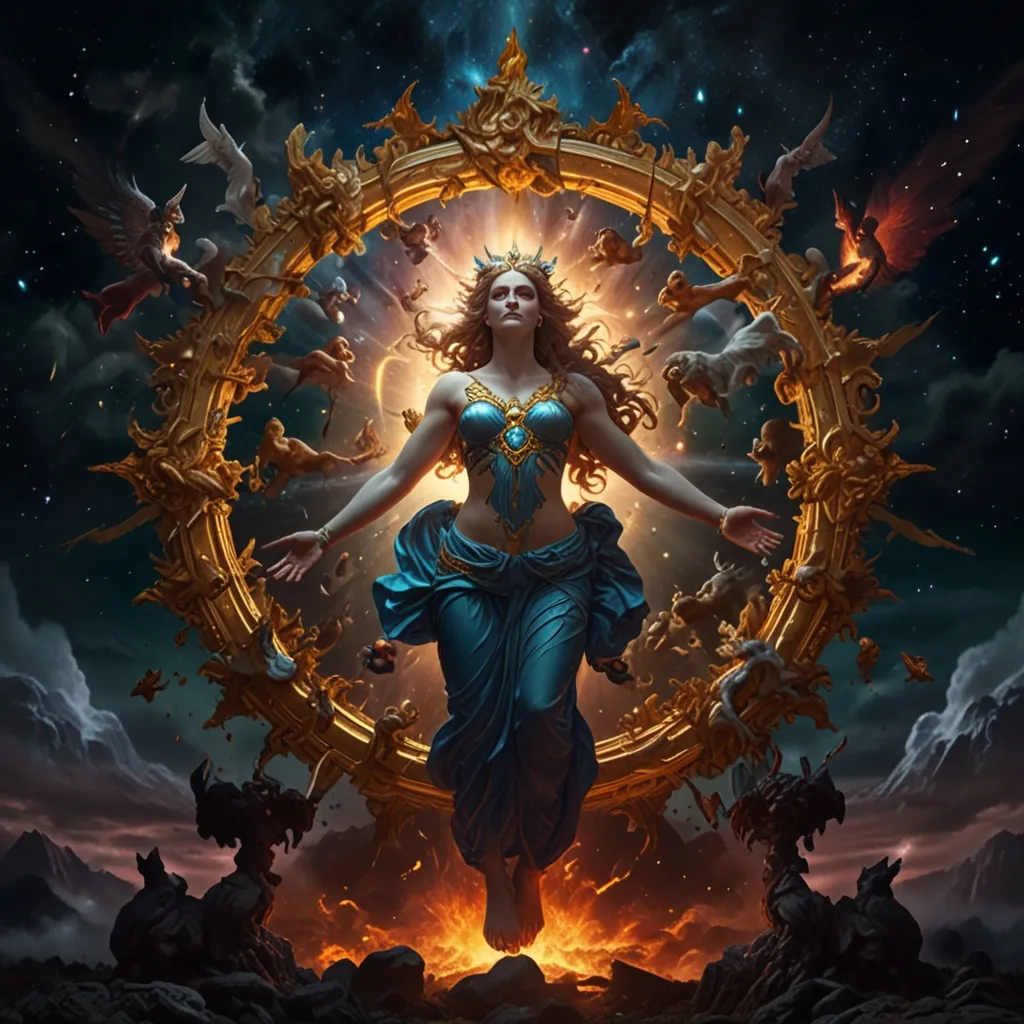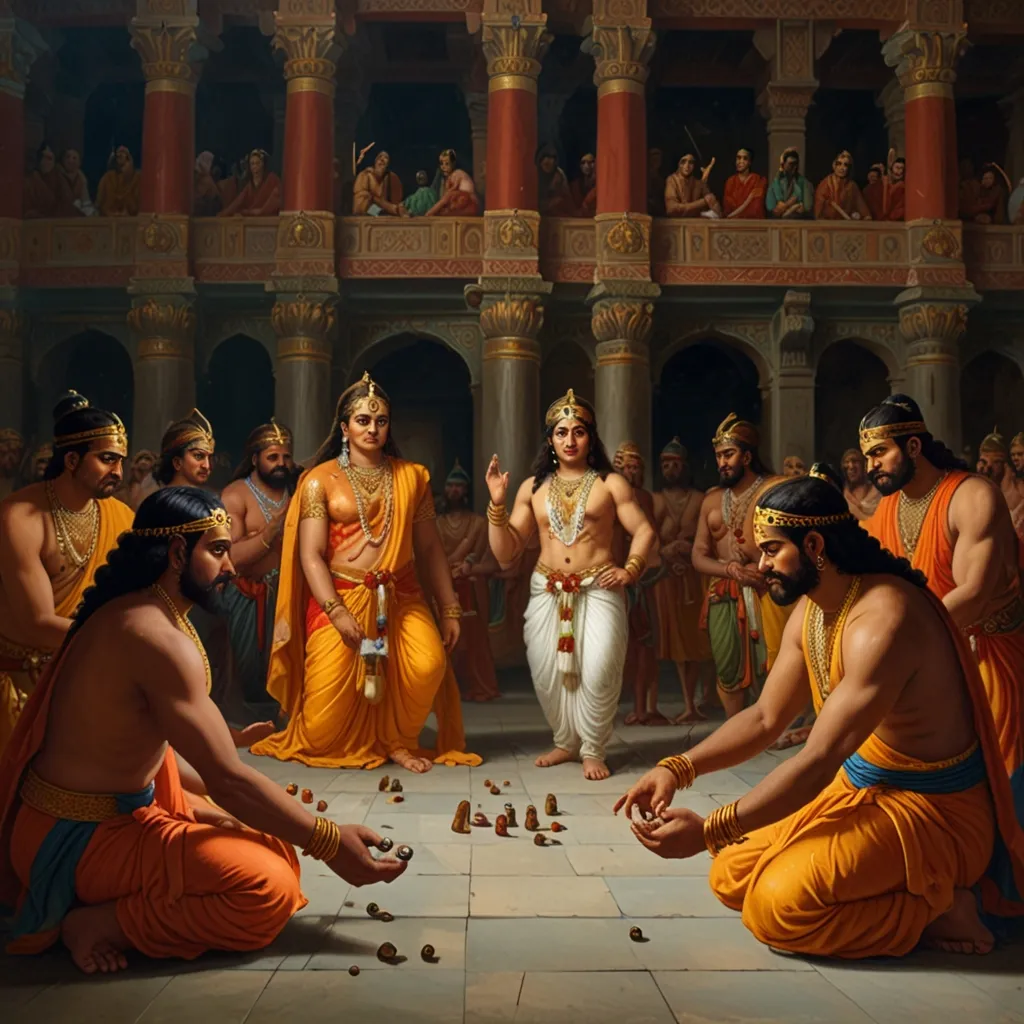Once upon a time, in the grand saga of the Mahabharata, there lived a king whose story would continue to intrigue and teach us for centuries. This wasn’t your everyday royal tale. King Yayati’s life was one of grandeur, drama, mistakes, and learning – essentially, everything you could ask for in an epic journey.
Yayati wasn’t supposed to be king, though. His older brother Yati had first dibs on the throne but decided to go all ascetic and renounce worldly joys (crazy, right?). Onto the throne stepped Yayati, eager and ready to rule. His reign brought prosperity and joy to his kingdom; life seemed perfect. But, as with all great stories, the real twist lay in his personal life.
Take one day during a routine hunting trip. Yayati stumbles upon Devayani, a stunning woman stranded in a well, courtesy of her rival Sharmishtha. Turns out Devayani wasn’t just anyone; she was the daughter of the powerful sage Shukra. Sharmishtha, who’d done the ill deed, was the daughter of a demon king, Vrishaparvan. Yayati, the hero of the moment, rescues Devayani and marries her, giving his story that essential mix of romance and drama.
Shukra, Devayani’s dad, was emphatic with his rules. Yayati was warned sternly never to associate with Sharmishtha, now assigned as a maidservant to Devayani. But who could resist temptation when Sharmishtha’s around? Yayati certainly couldn’t. Naturally, his indiscretion didn’t stay under wraps long, and an enraged Shukra cursed him to premature old age. Oops.
Yayati, now an old man overnight, couldn’t bear the sudden loss of youth. What’s a king to do? He did what any desperate person would do – ask someone else to bear his burden. Enter his sons. He begged them to trade their youth for his old age. Most of them deflected, except for his youngest, Puru. Moved by his father’s anguish, Puru stepped up and agreed. Just like that, Yayati was young again.
Freed from the shackles of old age, Yayati went on a thousand-year bender, indulging in every conceivable pleasure. But hey, the thrill was fleeting. The more he sought pleasure, the more he realized the emptiness it carried – just like pouring oil into fire only stirs more hunger. After a thousand years of this luxury binge, he decided enough was enough. He returned Puru’s youth and embraced old age again.
This marked a turning point. Yayati handed over his kingdom to Durhyu, another son, and with Devayani, headed to the forest to live a life of simplicity and seek spiritual enlightenment. Forest-life was no cakewalk, but amid the dense trees and quiet corners, Yayati found peace. His steadfastness paid off – he eventually ascended to Svarga, a heavenly realm, living in bliss.
What makes Yayati’s story so gripping isn’t just the events, but the lessons embedded within. His tale of indulgence and later renunciation is a clear reminder of the futility of material pursuits. True fulfillment? It’s hidden in spiritual paths and higher purposes, something modern life often forgets in its endless hustle.
Yayati’s story hasn’t just stayed locked in ancient texts. It’s been retold, analyzed, and woven into various forms of storytelling. One standout adaptation is V. S. Khandekar’s Marathi novel “Yayati”. The narrative digs deep into Yayati’s character, making his old-world dilemmas relatable even today. Multiple perspectives from figures like Devayani and Sharmishtha make the story richer, posing modern questions of morality.
The influence of Yayati’s story even trickles into everyday language. Ever heard of “Yayati Syndrome”? It’s about the tendency to trade ethical behavior for tangible gains – a nod to the king’s life-shaping choices.
At the end of the day, the tale of King Yayati remains timeless. His journey from excess to enlightenment sheds light on the incredible balancing act between worldly desires and spiritual aspirations. It’s not just a story but a lesson threaded into the fabric of human existence. Whether in ancient epics or modern conversations, the reminder is clear: seeking a higher purpose trumps all.






